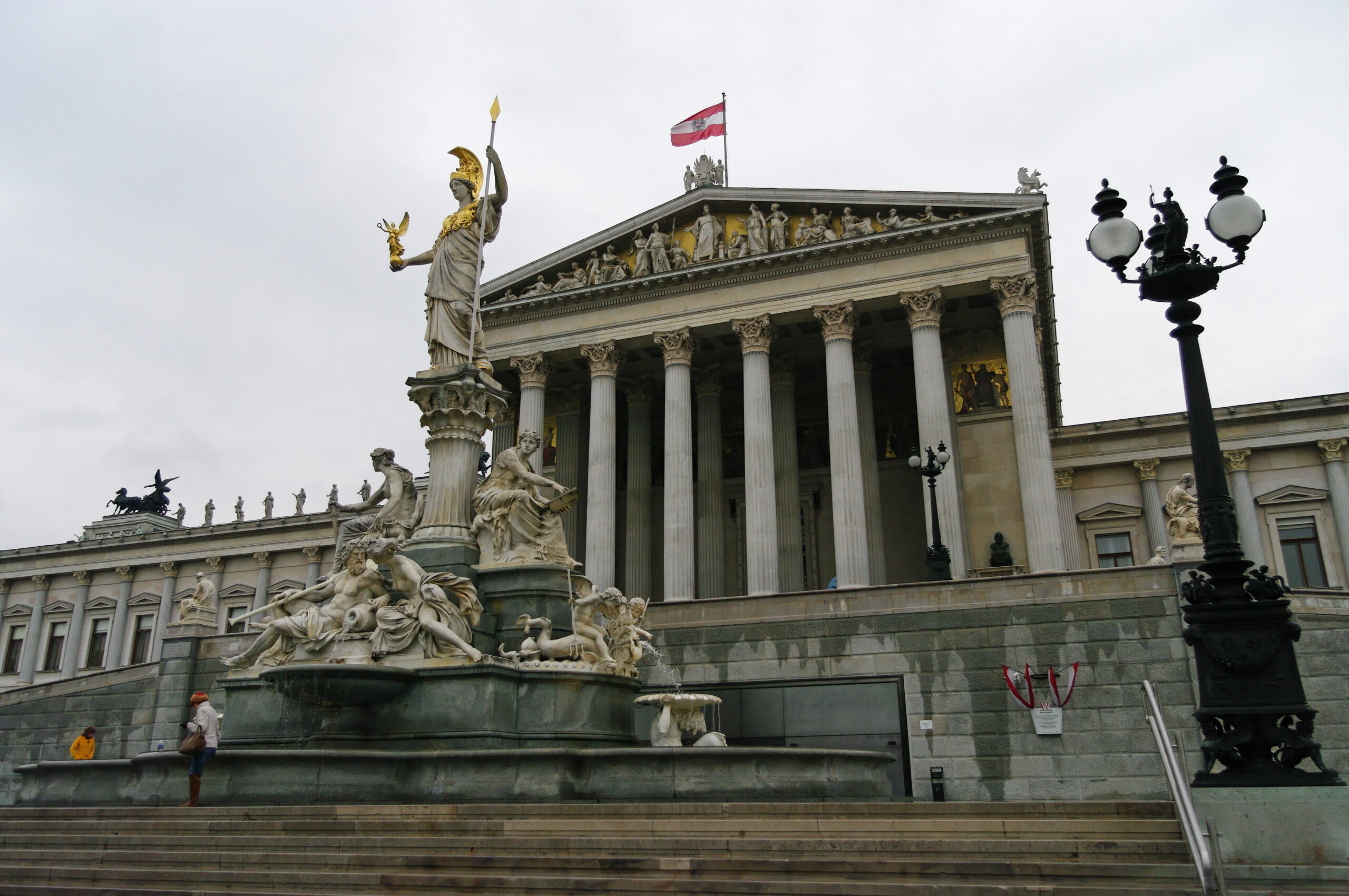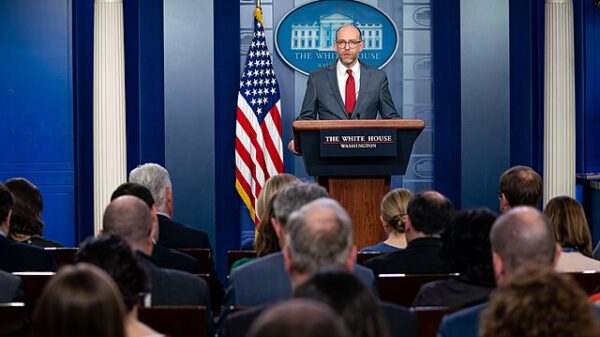Staff Writer Deborah Solomon reflects on the striking results of the recent Austrian election, and why the important gains made by the controversial Freedom Party (FPÖ) should be viewed in the context of the far-right’s rise in Europe.
The Freedom Party of Austria (FPÖ), Austria’s far-right populist party, is notorious among Austrians for various reasons, and ironically, extremely popular in some circles for the same reasons. Their growing popularity in those circles was demonstrated on Sunday 29 September, when the FPÖ managed to secure a “historic victory” in Austria’s parliamentary elections, with Herbert Kickl as party leader. A percentage of 28.9 may not seem like much, but in the Austrian government, where that percentage translates into 57 of 183 parliamentary seats, the party is right to celebrate.
A Crash Course on Austrian Government
This is because Austria, unlike the UK, operates on a voting system of proportional representation. This means there are more than two parties on the ballot. However, just like the UK, there are two houses of Parliament: the Nationalrat (National Council) and the Bundesrat (Federal Council). The former is the more powerful and significant house by far, and by extension, its election more significant — the Nationalratswahl (the vote for the National Council).
It is this Nationalratswahl which has just occurred, where five parties have won seats, with the most consequential being: the Freedom Party of Austria (FPÖ) with 57 seats, the centre-right Austrian People’s Party (ÖVP) with 51 seats, and the centre-left Social Democrats Party (SPÖ) with 41 seats. To win a majority, 92 of 183 seats are required.
The party that comes out on top will typically receive the President’s mandate to form a government. Alexander Van der Bellen, Austria’s president, has not indicated to whom he will offer the mandate, implying that “a new government must have his trust”. It is worth mentioning that in April, Kickl was investigated “on suspicion of breach of trust” when it came to the relationship between his party and the media.
Kickl’s Quandary and Potential Coalitions
Nevertheless, assuming the winning party receives the President’s mandate, that party will then usually lead a coalition government with a party that (ideally) aligns with them the most ideologically and can get them the remaining seats they need for a parliamentary majority. The FPÖ needs the ÖVP to form a coalition because an FPÖ and SPÖ coalition is ideologically impossible. The dilemma Kickl faces is that all the other parties have agreed that they will not form a coalition government with the FPÖ, except the ÖVP, who is willing to form a coalition with the FPÖ, but refuses to do so with Kickl at its helm.
And there’s the rub. If Kickl leaves, his party can be in power, albeit without him. If he stays, his party will supposedly not rule at all, as he will risk an ÖVP and SPÖ coalition, which, while not ideal for either party, is not an unheard of alternative, seeing as the ÖVP and SPÖ have formed a grand coalition on various occasions. To briefly illustrate the math: FPÖ + ÖVP = 108 seats (clear majority); ÖVP + SPÖ = 92 seats (the minimum requirement for a majority). If the ÖVP and SPÖ wish to strengthen their majority, they may add a third party to their coalition: either the Green Alternative (the Greens/die Grünen) with 16 seats or the New Austria and Liberal Forum (NEOS) with 18 seats.
How the ÖVP and SPÖ decide to strengthen their majority is not of serious consequence, because the main threat to the FPÖ is whether the ÖVP and SPÖ will form a coalition at all. If the ÖVP chooses the SPÖ, the ÖVP will be the senior partner in the coalition. The opposite is true if the ÖVP chooses the FPÖ, which clearly means less power for the former. Yet, the reason why there are genuine fears for a ÖVP and FPÖ coalition, instead of the more traditional grand coalition, is because in recent years, the SPÖ and the ÖVP have moved further away from one another on the political spectrum, with the latter gravitating more to the right.
The FPÖ’s Controversial History
To those unfamiliar with the FPÖ, the alarm bells may (understandably) still not be ringing. One crucial problem with the FPÖ is that they were founded by former Nazis. And, more worryingly, despite some (but not great) efforts to get people to forget this, they have not made any radical shifts away from their founders’ ideology.
To name just a few of their problematic beliefs, the FPÖ is blatantly Islamophobic, xenophobic, has not condemned Russia’s invasion of Ukraine, and, unsurprisingly, is Euro-sceptic. The party fell into greater infamy after the Ibiza Affair (explained in excellent detail in this article), which led to the demise of Heinz-Christian Strache, one of the foremost Austrian politicians of that era: then vice chancellor of Austria and party leader of the FPÖ.
How To Survive A Corruption Scandal 101
So how did such a seemingly unlikeable party win 57 seats? Well, Kickl, like many far-right populist leaders before him, knows how to appeal to his base. Capitalising on public discontent with Covid measures, inflation, and using immigration as a scapegoat (sound familiar?), Kickl has resurrected his party from the ashes of Ibiza and, in his words, “opened a door to a new era”.
His campaign placards are also noteworthy, on which he promised “5 GUTE JAHRE” (”5 GOOD YEARS”), which will, of course, only be possible if he wins. And should he lead, what will be done? According to his adverts, “EUER WILLE GESCHEHE” (“YOUR WILL BE DONE”).
This kind of messaging is simple, subtle, and clever: he appeals to his Catholic base by manipulating the Lord’s Prayer, which alters “Dein Wille geschehe”, to “Euer”, which is the plural form of “you”, thereby equating his followers to God. And how will he serve his God? By promising that he will “build ‘Fortress Austria’, to restore their security, prosperity and peace”.
The FPÖ’s win, regardless of whether they can successfully form a government or not, is extremely concerning to the over 70% of the country that did not vote for them. As observed by many international publications, Austria is just the latest European country to join the far-right trend that has been sweeping the continent. But this trend does not appear to be as fleeting as one might hope.
Assessing the Damage
This Nationalratswahl saw a voter turnout of 77.3%, and the verdict was clear. The far-right “trend” or “wave” is not one which will disappear if we close our eyes and wish it away. They have strengthened their hold in Europe the last few years, on an EU scale and domestically, as seen in their presence in coalition governments across the continent.
And these observations are not merely alarmist sentiments of the media; the far-right knows they are succeeding. In response to Kickl’s victory, far-right leaders across the continent offered their congratulations, including Hungary’s Victor Orbán and France’s Marine Le Pen. Netherlands’ Geert Wilders took to X posting, “We are winning! Times are changing! Identity, sovereignty, freedom and no more illegal immigration/asylum is what tens of millions of Europeans long for!” Times are changing indeed, but in what direction?
The Netherlands, Hungary, Belgium, Italy, Germany, Portugal, Sweden, France, Spain, Czech Republic and today Austria!
— Geert Wilders (@geertwilderspvv) September 29, 2024
We are winning!
Times are changing!
Identity, sovereignty, freedom and no more illegal immigration/asylum is what tens of millions of Europeans long for!
❤️
To reiterate, it is not relevant whether the FPÖ forms a government or not. It is disturbing enough that they came in first place. And if it is still unclear why, here is some perspective: since their inception in 1956 by former Nazis, the FPÖ has never come first in a Nationalratswahl. The cherry on top of this appalling cake is that the man leading this victory is one who has referred to himself as the Volkskanzler (people’s chancellor), a title connected most with Hitler.
Kickl has “rejected the comparison” to Hitler, as is expected in a country which has banned Nazi symbols, including the Hitler salute. Such denial is routine and necessary, as boldly associating with Nazism and Hitler would be political suicide for the FPÖ. This knowledge, however, is apparently not enough to contain the Nazi sympathies of the entire party, considering that multiple FPÖ candidates were recorded at a funeral at which an SS song was sung just days prior to the vote. For context, the SS, short for the Schutzstaffel, were a key Nazi organisation that initially served as Hitler’s “personal bodyguards“.
Why this is Crucial for Europe’s Future
But why does any of this matter? Well, it seems that Europe is at a crossroads. Far-right parties continue to collect political victories across the continent, but they are not the only ones winning. In the UK, for example, Reform UK won over 14.3 percent of votes in the July election, another victory for the far-right. Although, this was only a partial win, as the Labour party won 411 of 650 seats, removing the Conservatives from power. Likewise, the FPÖ did make history and won the most seats in this Nationalratswahl, but the extent of their victory is yet to be determined.
Clearly, voters in Europe are moving towards the far-right. Nevertheless, it is vital to note that not all of them are. The fact is that the far-right remains a minority, both here in the UK and elsewhere on the continent. Again, more than 70% of those who voted in Austria did in fact, not, vote for the FPÖ and instead wished to put less radical parties in power. As Wilders noted in his congratulations to the FPÖ, times are changing. Nonetheless, it might be too early to predict where that change will land Austria, and the continent as a whole.
It is easy to say that time will tell where European politics is headed, but this is untrue and encourages voter apathy and an acceptance of the way things appear to be. Where European politics is headed is entirely up to voters and political parties. If radical parties such as the FPÖ continue with their effective messaging and rhetoric, next time, they may well win a majority on their own. Conversely, should less radical parties organise as well as their radical opponents, inspiring increased enthusiasm, they could make gains in Austria’s next Nationalratswahl. Thus, preventing the FPÖ from replicating a result like this one, or worse, winning even more seats.
Therefore, it is irrelevant whether or not the FPÖ successfully forms a government. They have come back from the Ibiza Affair with admirable strength, a comeback which other parties, who lost votes in this election, may wish to take note of and study. Whether President Van der Bellen gives the FPÖ the mandate or not, and regardless of which parties agree to form a coalition, the FPÖ undoubtedly scored a pivotal victory in this election. And should the other parties not learn from this, it is absolutely possible that they will lose again and to a larger extent. Evidently, Austria and Europe are at a turning point. It is up to political parties and voters to decide which way we’ll be going.



















